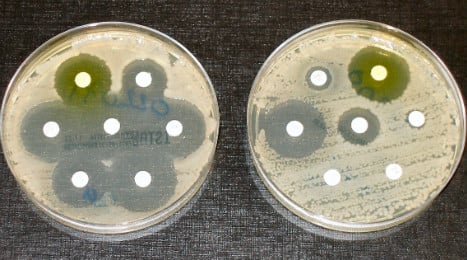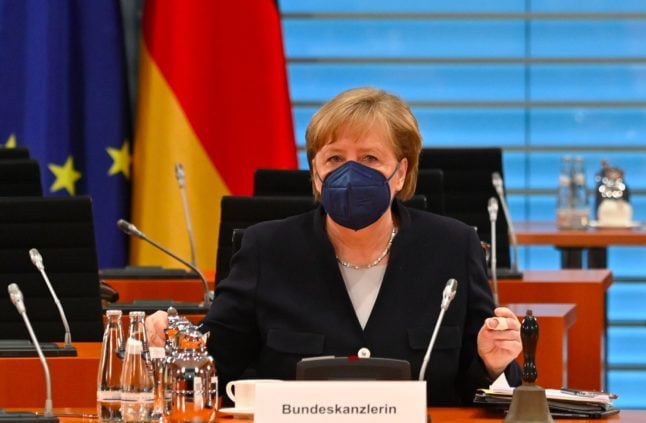In a hard-hitting study of antimicrobial resistance — when bacteria adapt so that existing drugs no longer curb them — the UN health agency said the problem was a global emergency.
"Without urgent, coordinated action by many stakeholders, the world is headed for a post-antibiotic era, in which common infections and minor injuries which have been treatable for decades can once again kill," warned Keiji Fukuda, the WHO's assistant director-general for health security.
"Unless we take significant actions to improve efforts to prevent infections and also change how we produce, prescribe and use antibiotics, the world will lose more and more of these global public health goods and the implications will be devastating," he said.
The unprecedented report gathered data from 114 countries, and focused on seven different bacteria responsible for diseases such as diarrhoea, pneumonia, urinary tract infections and gonorrhoea.
Even so-called "last resort" antibiotics are losing their ability to fight such bacteria, with half of the patients showing resistance in some countries, the report said.
"The capacity to treat serious infections is really becoming less in all parts of the world," Fukuda said, stressing that "antimicrobial resistance is not a just future issue, … but very much an issue today."
Medical charity Doctors Without Borders (MSF) said the scale of the crisis was frighteningly clear on the ground.
"We see horrendous rates of antibiotic resistance wherever we look in our field operations," said Jennifer Cohn, an MSF medical director.
Among the report's key findings were the global spread of resistance to carbapenem antibiotics — the last resort treatment for life-threatening infections caused by the common intestinal bacteria Klebsiella pneumoniae.
Known as K. pneumoniae, it is a major cause of hospital-acquired infections such as pneumonia and sepsis, often hitting newborns and intensive-care patients.
Resistance to one of the most widely used antibacterial medicines for the treatment of urinary tract infections caused by E. coli — fluoroquinolones, is also widespread.
There was hardly any resistance when the drugs were introduced in the 1980s, but it now affects half of patients in many part of the world, the WHO said.
The problem is a particular concern in Africa, the Americas, South and Southeast Asia, and the Middle East.
Resistance to third-generation cephalosporins — the last resort for tackling gonorrhoea, which infects more than a million people every day — has been confirmed in Austria, Australia, Britain, Canada, France, Japan, Norway, South Africa, Slovenia and Sweden.
Another case in point is MRSA — methicillin-resistant Staphylococcus aureus — which has grabbed headlines due to a rash of outbreaks at hospitals.
Patients with MRSA are 64 percent more likely to die than those with a non-resistant form of the bug, the WHO said.
In parts of the Americas, resistance to MRSA treatment had reached 90 percent, while levels of 60 percent were seen in Europe, the study found.
Resistance also raises health costs because of longer hospital stays and more intensive care.
"We rely upon these medicines to protect people when they are most vulnerable," Fukuda said, pointing to the importance of having working antibiotics to protect babies born prematurely, people going through cancer treatments or undergoing routine surgery.
"We anticipate to see more deaths," he said.
Efforts to tackle the problem have lagged behind its growth, the WHO said, flagging weak or totally absent monitoring in many countries.
MSF's Cohn echoed that.
"Countries need to improve their surveillance of antimicrobial resistance, as otherwise our actions are just a shot in the dark," she said.
The WHO urged policymakers to strengthen resistance tracking and laboratory capacity, and to tighten regulation and promote appropriate drug use.
They should also do more to stop infection in the first place, with better hygiene measures, access to clean water, infection control in health-care facilities, and vaccination, to reduce the need for antibiotics, it said.
Health workers and pharmacists should only prescribe antibiotics when truly needed, and the medical industry should step up efforts to ensure the sector stays ahead of emerging resistance, the WHO said.
Patients, meanwhile, should only use antibiotics when prescribed by a doctor, complete their treatment even if they feel better and not use leftover drugs, it added.



 Please whitelist us to continue reading.
Please whitelist us to continue reading.
Member comments